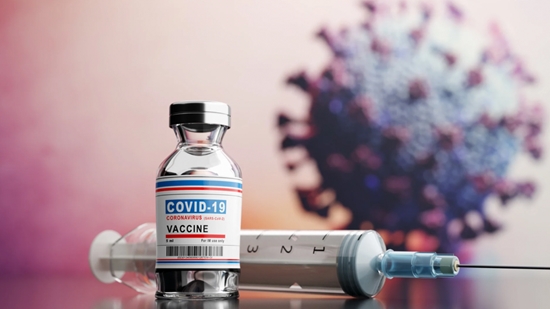ارتباط تشنجهای تازه شروع شده با واکسنهای SARS-CoV-2: مروری سیستماتیک و متاآنالیز بر کارآزماییهای بالینی تصادفیسازی شده
آیا بروز تشنج هایی که تازه شروع شده اند پس از واکسن SARS-CoV-2 از نظر آماری با بروز در میان افرادی که واکسن SARS-CoV-2 را دریافت نمی کنند، متفاوت است؟

این مطالعه بررسی کرد که آیا دریافت واکسن COVID-19 خطر ابتلا به تشنج را برای اولین بار افزایش می دهد یا خیر. آن ها داده های چندین مطالعه بزرگ را بررسی کردند که در آن افراد به طور تصادفی برای دریافت واکسن یا دارونما (محلول غیرفعال) انتخاب شدند. نتیجه نهایی نشان داد که تفاوت معنی داری در خطر تشنج بین افرادی که واکسن دریافت کرده اند و کسانی که واکسن را دریافت نکرده اند، وجود ندارد. به طور کلی، این مطالعه نشان می دهد که دریافت واکسن COVID-19 با افزایش خطر تشنج های جدید مرتبط نیست.
Association of New-Onset Seizures With SARS-CoV-2 VaccinesA Systematic Review and Meta-Analysis of Randomized Clinical Trials
Importance Seizures have been reported as an adverse effect of the SARS-CoV-2 vaccine. However, no study has answered the question of whether there is any association between seizures in the general population and COVID-19 vaccination.
Objective To evaluate the seizure incidence among SARS-CoV-2 vaccine recipients compared with those who received a placebo.
Data Sources A systematic search of MEDLINE (via PubMed), Web of Science, Scopus, Cochrane Library, Google Scholar, review publications, editorials, letters to editors, and conference papers, along with the references of the included studies from December 2019 to July 7, 2023.
Study Selection Randomized clinical trials (RCTs) reporting seizure incidence with SARS-CoV-2 vaccination were included.
Data Extraction and Synthesis This study is reported according to the Preferred Reporting Items for Systematic Reviews and Meta-Analyses framework and used the Mantel-Haenszel method with random- and common-effect models. The risk of bias of the studies was assessed using the Cochrane assessment tool for RCTs.
Main Outcomes and Measures The outcome of interest was new-onset seizure incidence proportion compared among (1) SARS-CoV-2 vaccine recipients and (2) placebo recipients.
Results Six RCTs were included in the study. Results of the pooled analysis comparing the incidence of new-onset seizure between the 63 521 vaccine and 54 919 placebo recipients in the 28-day follow-up after vaccine/placebo injection showed no statistically significant difference between the 2 groups (9 events [0.014%] in vaccine and 1 event [0.002%] in placebo recipients; odds ratio [OR], 2.70; 95% CI, 0.76-9.57; P = .12; I2 = 0%, τ2 = 0, Cochran Q P = .74). Likewise, in the entire blinded-phase period after injection, with a median of more than 43 days, no significant difference was identified between the vaccine and placebo groups regarding incident new-onset seizure (13/43 724 events [0.03%] in vaccine and 5/40 612 [0.012%] in placebo recipients; OR, 2.31; 95% CI, 0.86-6.23, P = .10, I2 = 0%, τ2 = 0, Cochran Q P = .95).
Conclusions and Relevance According to this systematic review and meta-analysis, there was no statistically significant difference in the risk of new-onset seizure incidence between vaccinated individuals and placebo recipients.


.png)
.png)
ارسال به دوستان